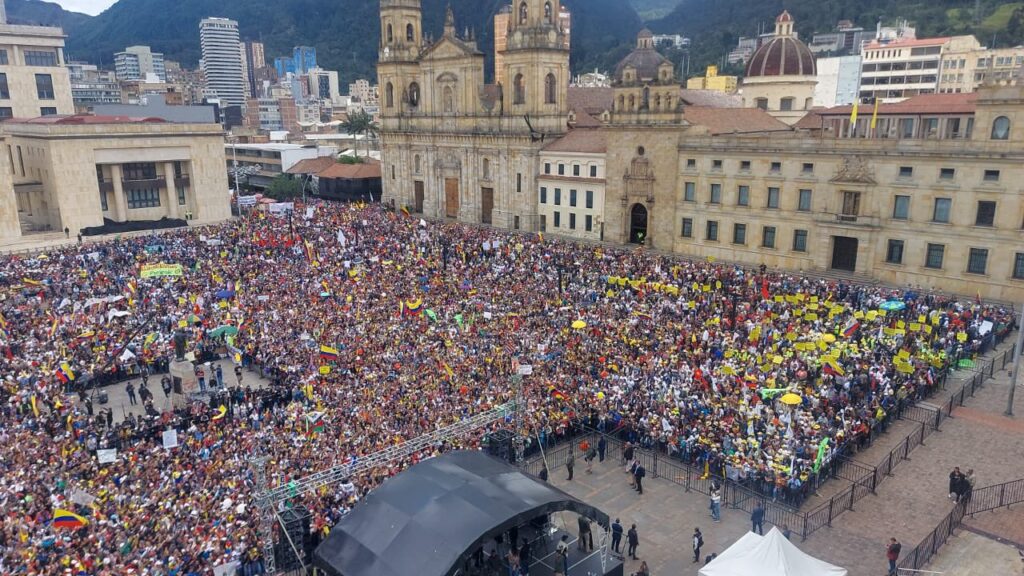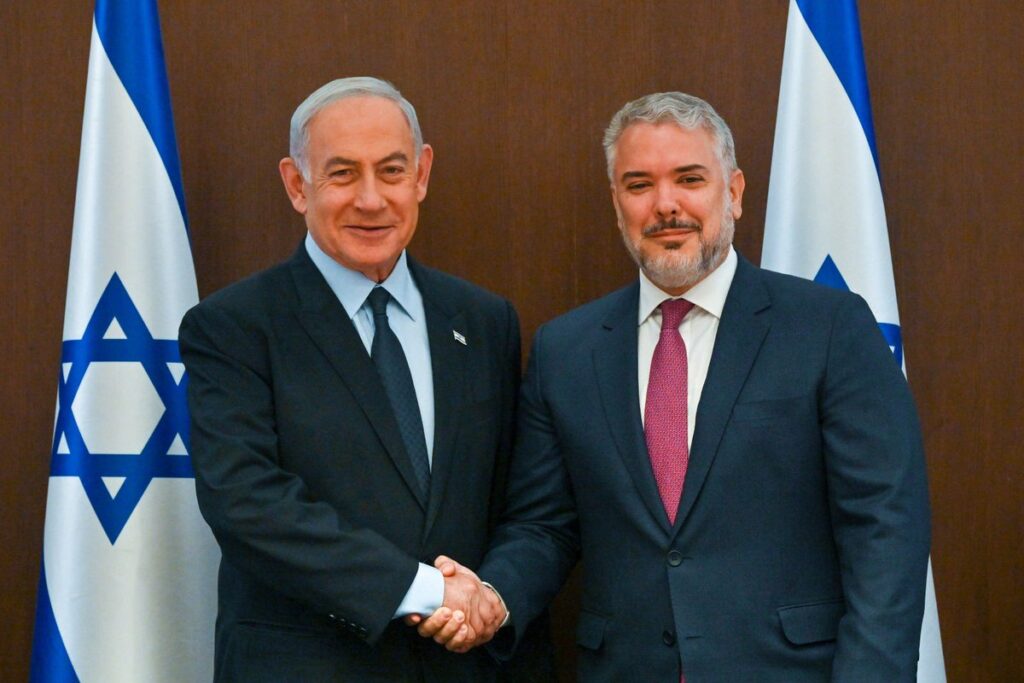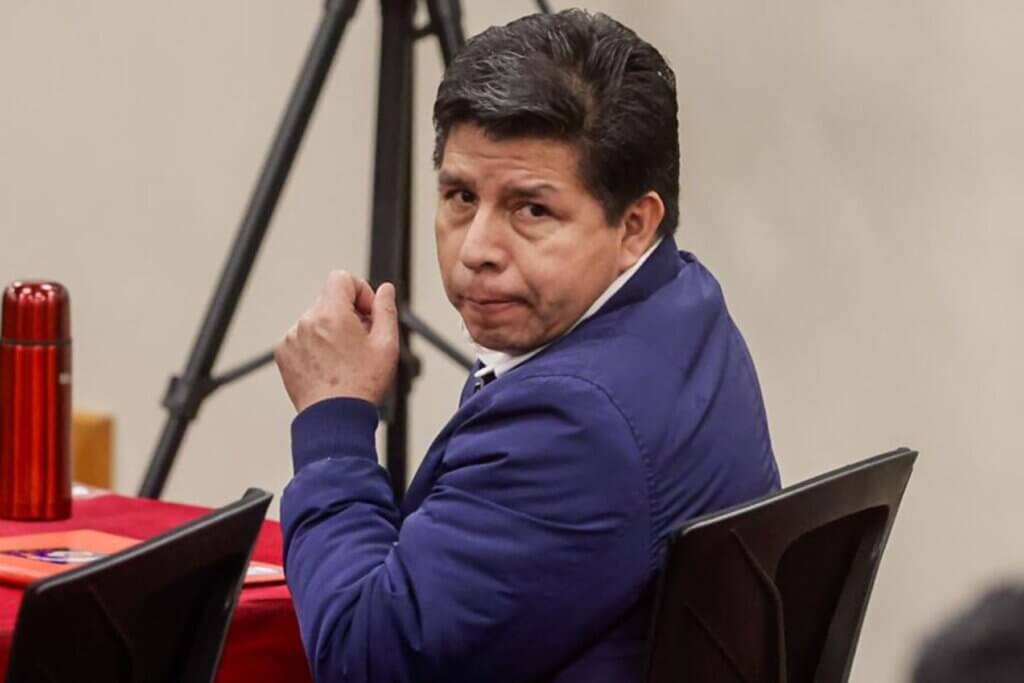Medellín, Colombia – After a breakdown in diplomatic ties between Colombia and Israel last month, the Israeli ambassador has until June 30 to exit the Latin American country, according to Caracol Radio.
The news outlet reported this week that the deadline had been set in May, when relations between the two countries had ruptured over the war in Gaza, and that Colombian officials at the embassy in Israel would also return home.
Despite the removal of officials, the “Colombian Ministry of Foreign Affairs intends to maintain the activity of the respective consular sections in Tel Aviv and Bogotá,” reported Caracol.
Tensions between Petro and Netanyahu
As a response to the ongoing war in the Gaza Strip between the state of Israel and Hamas, Colombian President Gustavo Petro announced on May 1 that he would break all diplomatic relations with Israel. “Because they have a genocidal government and president,” Petro stated at a protest last month. This rupture has ended diplomatic relations that date back to 1957.

(Image Source: Gustavo Petro Via X)
That same day, the national government released a statement claiming that it had “clearly and repetitively expressed its position on the conflict between Israel and Palestine since October 7th, 2023,” and that it had not stopped demanding a ceasefire, the immediate release of all hostages, and the efficient delivery of necessary humanitarian aid for Gaza’s population.
With this, Colombia reaffirmed their call for an urgent solution to the conflict between Israel and Palestine, claiming that “both peoples deserve to live in peace.”
Days later, Benjamin Netanyahu, Israel’s Prime Minister, responded: “Israel will not be lectured by an antisemitic supporter of Hamas … Shame on you President Petro!”
Reactions in Colombia to the government’s move
The decision by Petro’s government has been praised by some, including senator Iván Cepeda, who explained that “Netanyahu’s government deserves global condemnation.”
However, it has also been highly criticized by the government’s opposition. Juan Espinal, Second Vice President in the House of Representatives, vehemently rejected the diplomatic divergence, stating on X that “this decision will not only affect our security, but the national economy as well by putting at risk more than 1 billion dollars in exports from the industrial and agro-industrial sectors, as well as investments in our country’s technology, cyber security and other sectors.”

(Image Source: Iván Duque Via X)
The Colombian government signed a Free Trade Agreement with Israel in 2013, which entered into force in 2020. With this, both nations sought to eliminate barriers in trade, facilitate the movement of goods, promote conditions of competition, and promote further bilateral and multilateral cooperation to enhance such an agreement. Because of this, many considered the diplomatic ties as a “special agreement.”
In addition to the staff at the Israeli embassy in Bogotá, the Colombians working at the embassy in Jerusalem will also return to their home country. Ambassador Margarita Manjarrez explained to local radio station W Radio that she has been working tirelessly to conclude her mission later this month, although consulates will remain open in both countries to attend to the needs of Colombians and Israelis. Her current role solely includes the administrative closure of the embassy, and does not include any official contact with Israel’s state functionaries.











